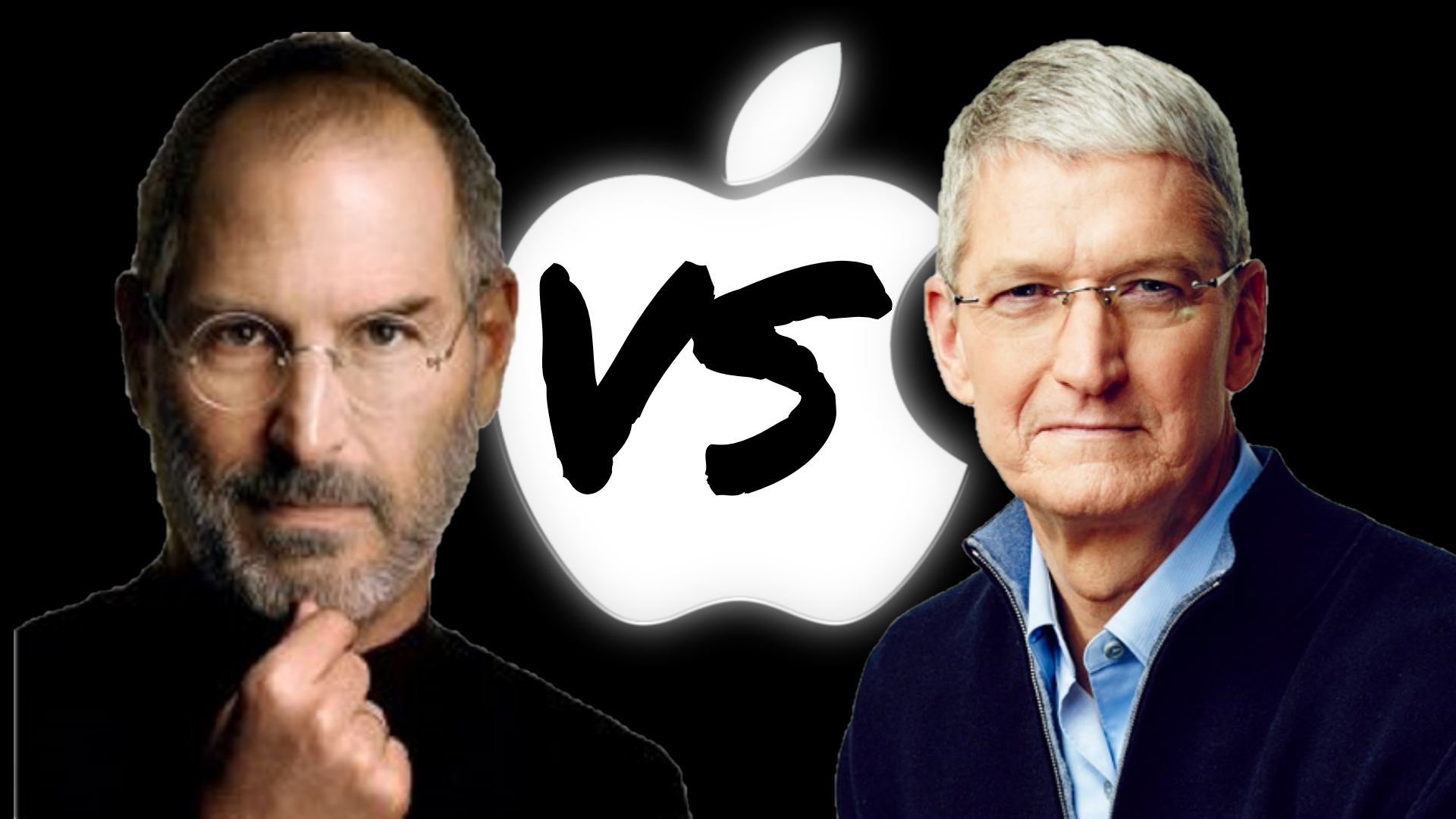Steve Jobs vs Tim Cook
The success or failure of any organization depends mainly on the prevalent leadership style as embodied by the ones at the helm. This fact remains true for one of the biggest tech companies worldwide, Apple. A leader may use a mix of different management styles based on situations and the objectives at hand; thus, a single method of navigation cannot be classified as superior to others because workplace demands are diverse with different missions and visions.
Despite this, many of the critics and users alike began comparing the two juggernaut executives at Apple, as soon as Tim Cook took the reigns after Steve’s passing. However, we must keep in mind that there are several arguments in favor and against both CEOs, who have done the excellent job; in fact, Tim Cook is holding the position with much appreciation from the employees of Apple. Therefore, we find it impossible to declare one as superior to the other. That being said we are able to mention some points of comparison and leave the decision up to you.
To see the video of the podcast click here
To start, Steve Jobs believed in creating Insanely Great Products and would put his heart and soul into the making of any product. Furthermore, he would force these same ideologies onto those who worked for him. If an employee is on Christmas vacation, he would call them back to make the necessary changes overnight. He wouldn’t care about the psychological damage of employees.
In contrast, Tim Cook is more worried about everything in the company. He understands the needs of employees working for Apple and showed more social responsibility by improving work culture. This management change has influenced Apple’s innovation strategy, which has altered its rebellious nature under the leadership of Steve Jobs, into a more conventional one. Industry experts noticed that under the guidance of Cook, Apple began to upgrade the existing product line instead of releasing revolutionary products like the iPod, iPhone, and iPad.
According to an employee of Apple, Steve Jobs was a “wartime CEO.” When Jobs returned to Apple, the company was passing through its bad phase. And perhaps, that is why Jobs showed extraordinary guts and aggression to bring Apple up from the swamp. His aggressive stance was appreciated then, but now that the company has achieved the reputation as the world’s number one communication technology provider, people are critical of the same aggression.
To be fair, it wasn’t the mere return of Steve Jobs that brought Apple back from the brink of bankruptcy. Approximately, a year after Jobs came back to the company he co-founded; Tim Cook was brought on board to help with the economic aspects of the business. Before Cook, Apple was in complete financial and operational muddle. Though we have to accept that through Steve Jobs’ visionary leadership and genius product design, the quality was often compromised, the availability of the product was terrible and costs were running out of control. Apple was a player in an industry which was steady.
With his experience at IBM, where he expedited supply chain management, Cook introduced some drastic changes in integrated marketing, product design, and manufacturing in Apple. His idea was to offer “simple solutions to complex problems” and to make it possible, he launched grand marketing campaigns, colossal engineering feats, and cost-saving methods.
Truthfully, if we wanted to dissect each minute detail of distinction between these two extraordinary people, we would be here for days. There is no doubt about Steve Jobs being a visionary leader with great creative thinking who has an eye for picking out the most talented people. On the other hand, there’s little debate that Tim Cook would be an ideal leader of Apple, due to his vast knowledge and experience in the field of management.















Post Comment